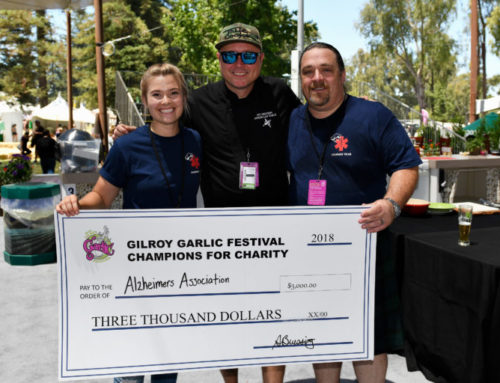Published in the Oct. 2-15, 2013 issue of Morgan Hill Life
By Marty Cheek
If you’re planning to attend the Northern California Renaissance Faire now taking place at Casa de Fruta, take a moment to say “Good morrow to thee, sir” to William Shakespeare, the greatest writer of the English language. The poet playwright from Stratford-upon-Avon, whose doppelgänger you’ll more than likely see at the faire, was the literary soul of his age.

Marty Cheek
This year I undertook an ambitious goal to read all of Shakespeare’s 37 known plays. I started with the tragedies, continued with the history plays, and am now finishing up his comedies. I’ve also spent time studying Shakespeare the human being, the man who discovered his theatrical-writing genius during the turbulent Tudor period of England’s history.
Some people believe Shakespeare did not actually write any of his plays, but that the works attributed to him were actually written by other men (and one wild theory supposes that Queen Elizabeth herself might have been the author). The primary candidate for this Shakespeare conspiracy authorship is Edward de Vere, the 17th Earl of Oxford and an Elizabethan courtier. The 2011 movie “Anonymous” explored the idea that an actor named William Shakespeare served as the front man for de Vere’s secret play-writing endeavors.
Exploring Shakespeare’s life and times, I have devised my own hypothesis of how a Warwickshire country boy came to the worldly city of London and grew into a Tudor theater sensation. Allow me to share with you my “Team Shakespeare” theory. It supposes that Shakespeare did not write his works in a vacuum. Instead, he had a collaborative band of actors and other playwrights helping him.
No doubt, Shakespeare was a keen observer of human nature. Traveling from a rural village and stepping through the gates of London for the first time as a young man, he must have been spellbound by the diversity of characters he met while exploring England’s capitol city. From the lowliest of commoners to the loftiest of courtiers — including the queen — the ambitious author saw a pageantry of personalities who would come to fill the pages of his scripts. Perhaps, like Prince Hal, he spent too many hours chugging down beer and listening to outrageous tales from a real-life Falstaff in some London tavern.
Like many authors, Shakespeare began as a hack writer for hire. It seems likely he honed his craft while collaborating with other playwrights on theater productions, everyone providing elements to a play’s plot, characters and dialogue while working and reworking the text. A similar system functions today in Hollywood, with movie studios hiring numerous writers to collaborate on a screenplay.
Let’s remember that Shakespeare was also an actor, and his stage performances no doubt gave him a keen sense of how well-written words reveal the complexity of character. And his boyhood love of the Roman poet Ovid’s works taught him about the rhythm, rhyme, flow and cadence of words that were transferred from the page to the stage.
Something exciting happened in the year 1594 that sparked Shakespeare’s true literary genius. That year is a pivotal point in Shakespeare’s writing career because in 1594 he became one of eight founding actor-investors of a new theater company called the Lord Chamberlain’s Men. He was no longer a hack writer working under the dictates of whatever stage company might want to buy his plays. As a co-owner of a company, he found the creative independence he craved. With his own money on the line, the financial stakes were also high for him to make sure the quality of his writing output would satisfy the crowds. He had to provide entertainment that would keep bringing them back for more.
He also weaved subtle political messages into his theatrical stories, giving understated warnings to the court and the crowds. “Romeo and Juliet” might easily serve as a disguised admonition of the dangers of the Catholic-Protestant division then troubling Tudor England. The world’s most famous love story counsels that the deep-seated animosity then pervading the England’s society might end with the sacrifice of the upcoming generation.
Artistic creation for the stage is always a collaborative endeavor. I believe that as Shakespeare was creating his works, he received much feedback from his fellow investors who acted out his stage stories. He knew his fellow actors personally, and he tailored each of his characters to their own theatrical strengths, adding their physical and emotional distinctions which built up the complexity of his characters.
The myth many people have of great writers is that words just pour from their pens like water out of a fountain. That metaphorical water of the imagination, flowing from a subconscious aquifer, must come from some source… the world an author lives in. But writing is also a collaborative effort. Shakespeare had a team that inspired him to create many of the greatest plays in the history of theater.






